Jason Husser is Director of the Elon University Poll and Assistant Professor of Political Science at Elon University. You can find him on twitter at @jasonhusser
What are the three most important issues on the campaign trail in your state?
None. I say that only joking a little. While the 2014 U.S. Senate race in North Carolina emphasized Obamacare, the emerging ISIS threat and the federal budget, much of the discourse about the 2016 race has been about the presidential and gubernatorial races sucking all of the air out of the room. Overall, the U.S. Senate race in North Carolina is a low information race with relatively low levels of recognition for both major party candidates.
When issues have emerged in the U.S. Senate race they have largely been personal in nature. For the Democratic challenger Deborah Ross it has been about her role with the ACLU and her prior views of a sex offender registry. For the incumbent Republican Richard Burr it has been about his family’s personal net worth and Senate votes on insider trading.
Perhaps the most substantive discussion of an issue has been about the controversial HB2 legislation, the dominant issue in the gubernatorial context.

How have the candidates handled these issues and which candidate has been the strongest?
Burr deftly handled criticism of his personal net-worth in the debate on October 13 by attributing his household wealth increase to his wife’s personal success, effectively turning the tables on Ross.
Anti-Ross ads have cited a quote from a memo she authored that said sex offender registries “would make it even harder for people to reintegrate into society and start over and could lead to vigilantism.” The National Republican Senate Committee has paid for a website labeling the Democrat “Radical Ross.” Ross has pushed back against the ads by saying she voted many times to strengthen registries.
Burr’s support of parts of HB2 exposes him to potential for damage. Ample polling evidence has emerged that HB2 is unpopular in the state and a majority of North Carolina voters would like the legislation repealed. Burr stated a hope in the debate that the City of Charlotte and General Assembly would work together to reverse HB2, but this response is likely too tepid for the many independent voters who want the legislation repealed.
Who are the key interest and demographic groups in your state that have the power to influence the outcome of the election?
Currently polls show the North Carolina U.S. Senate race about as evenly divided as possible, though more recent polls are trending very slightly towards Burr. In an election this close, almost every demographic group is critical.
However, white female voters are the demographic most likely to determine the outcome of the race. In the last poll we conducted at Elon in late September, we found Burr down 12 points to Ross among women planning to vote for one of the two major party candidates. While Burr still needs to reduce the gender gap, he is doing better than Pat McCrory and Donald Trump who were down 18 percent and 22 percent, respectively. Female voters outnumbered male voters 55 percent to 45 percent in the 2012 North Carolina general election.
If Burr is able to brand himself as a moderate Republican running against a liberal Democrat, he might be able pick up enough self-identified moderates, a group he is losing to Ross overall.
Finally, and this is cliché, both candidates have opportunities with late-breaking undecided voters. The last Elon Poll found 8 percent of voters were undecided in the Senate race compared to only 5 percent in the gubernatorial and presidential races. Undecideds are not a huge group, but this campaign is a contest of inches not yards.
How have outside surrogates, SuperPACs, or other outside spending played a role in the race?
Through mid-October, Open Secrets tracked over $35 million in outside spending in the North Carolina U.S. Senate race. More of this has been in favor of Burr than Ross. The conservative Senate Leadership Fund alone has spent over $10 million. The National Rifle Association and the NRA Institute for Legislation action have spent over $8 million combined. Ross’s campaign has been boosted by almost $4 million from the Democratic Senatorial Campaign Committee and $3.5 million for the Women Vote! SuperPAC. “Small” money outside spending includes group as varied as they American College of Radiology, which has spent over $400,000 in support of Burr.
We will likely see some volatility over the next three weeks in the North Carolina U.S. Senate race due to millions of outside dollars spent on ads airing between now and Election Day.
National media attention to this Senate race has been substantial. What important aspects have the media overlooked that may surprise outside observers on Election Day?
Three aspects of the race deserve more research.
The Libertarian candidate, Sean Haugh, is polling worse than he did in 2014, but the race is tight enough that he could be a spoiler to either candidate. Sample sizes in polls are generally too small to know if Haugh will hurt Burr more than he hurts Ross.
Numbers on absentee ballot requests are more favorable towards Democrats in 2016 than they were in 2012. This could be due to greater Democratic enthusiasm. It might also be attributed to coordinated efforts by Democratic campaigns to encourage absentee voting in response to the now defunct voter ID law.
Hurricane Matthew’s impact on the race isn’t clear either. The turnout effect from Matthew could be a bigger challenge for Democrats than for Republicans, as much of the damage that will take months to repair tended to be in low-income areas.
How has the Presidential race influenced the Senate race in your state?
Most analysts, including me, thought Burr would be leading by more at this point in the race. A retrospective narrative linking Burr’s fate to Trump’s will be easy to craft if we see Burr losing narrowly simultaneous to a major Trump loss. The last group of polls in the state have shown an uptick for Burr while Trump has fallen, suggesting their fates are not perfectly entwined.
Currently, split ticket voting doesn’t appear to be unusually high. However, that may change if some sophisticated moderates and independents decide a Clinton presidency is inevitable and they hope to hedge their bets by voting for a Republican senator, especially given the Senate’s role in judicial confirmations. Even if this group of ticket splitters remains small, they could make the difference in a race this tight.
The Clinton campaign has a more organized set of field offices in the state for voter mobilization than does Trump. Ross is a natural beneficiary of this imbalance.
What is certain about the Presidential race’s impact on the North Carolina Senate race is that Trump and Clinton have made it very difficult for Burr and Ross to move the needle on their own. When the state has multiple visits each week by Trump, Clinton, and their famous surrogates, a U.S. Senate race is simply overshadowed, despite its importance for public policy outcomes.
The Brookings Institution is committed to quality, independence, and impact.
We are supported by a diverse array of funders. In line with our values and policies, each Brookings publication represents the sole views of its author(s).

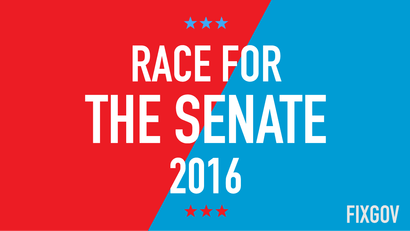
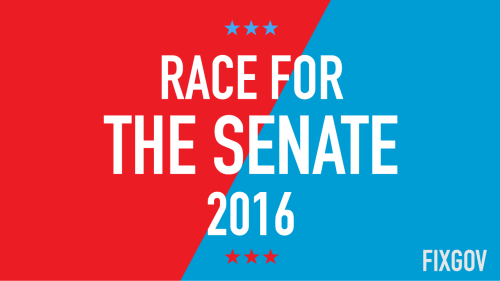
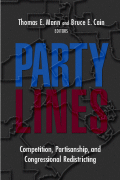
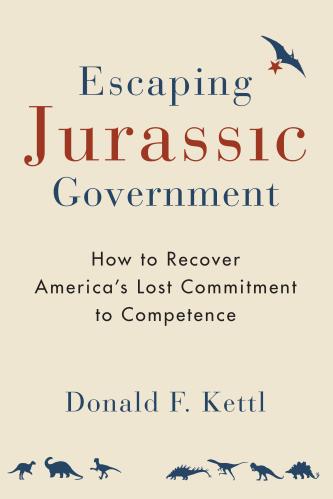
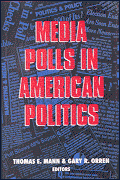



Commentary
Race for the Senate 2016: Key issues in North Carolina
October 31, 2016